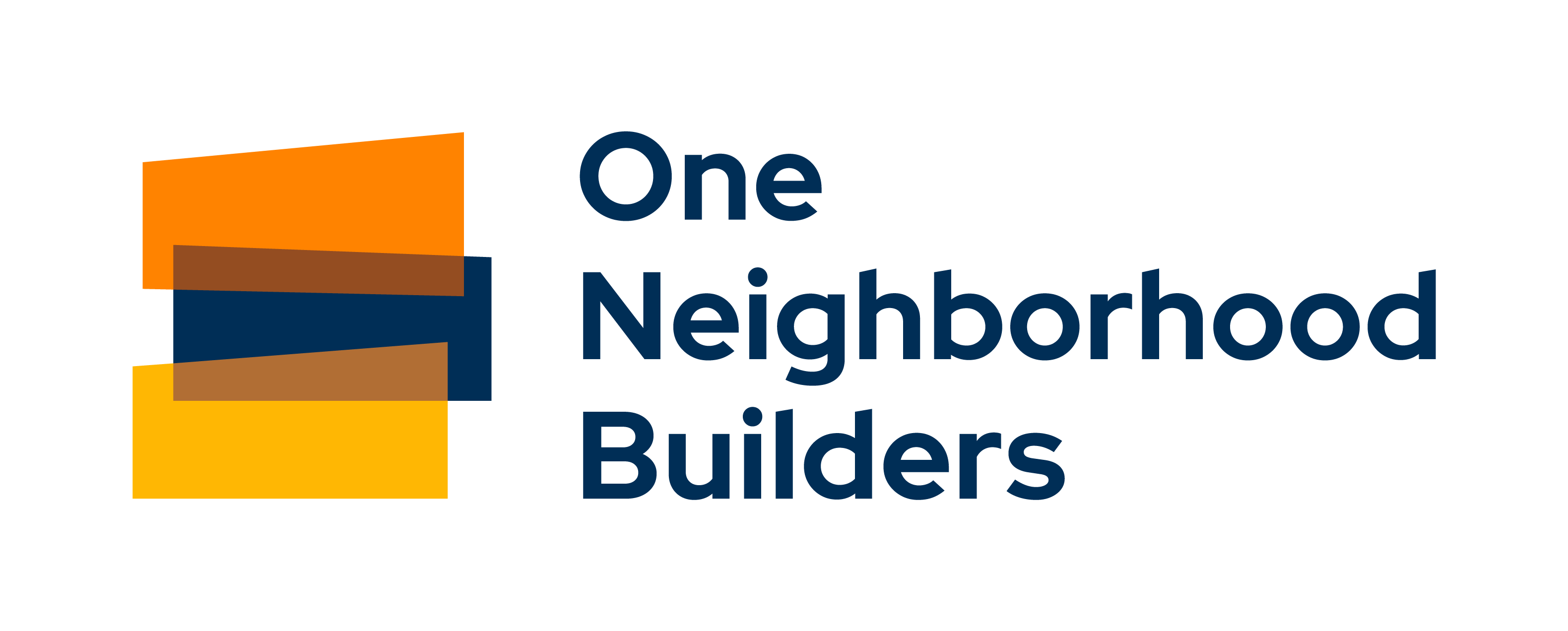One metric for evaluating an organization’s commitment to Diversity Equity and Inclusion is the proportion of staff who reflect the community that the organization serves. A further step is evaluating the proportion of the leadership team (staff and board of directors) that are diverse.
ONE|NB works across Greater Providence, but our historical home is the Olneyville neighborhood of Providence: our headquarters is in this neighborhood and it is where most of rental apartments are located. Olneyville residents are ethnically and racial diverse with two-thirds identifying as Latinx while 18% identify as Black and 7% as two or more races.
In 2017 ONE|NB set out to intentionally increase the ethnic and racial diversity of its staff and Board of Directors. At that time, we had a Board of seven individuals, 5 (71%) were white and 2 (29%) were Black; there were no Latinx directors. We had just gone through a large staff turnover and were presented with the opportunity to reshape the diversity of the staff virtually from scratch. In 2017 we had only three employees: 2 were white and 1 was Latinx.
Through intentional recruitment and hiring practices we have been able to increase the diversity of our board and staff. Today we have a 10-member Board comprised of 30% Black, 30% Latinx, 40% white directors; half of our executive officers are persons of color.
From a staff perspective we have also greatly improved our diversity. Today we have a team of 16 individuals, of whom 8 (50%) identify as Black, Indigenous, Persons of Color (BIPoC) and half of my 4-member senior leadership team are BIPoC.
Importantly, the racial, ethnic, socio-economic and gender diversity of ONE|NB has been a tremendous gift over these last several tumultuous months. I strongly believe we have arrived at smarter and more compassionate solutions because of the diverse viewpoints provided by my team.
A lesson I’ve learned over the last three years is that a commitment to DEI from a human resources standpoint has three stages: (1) recruitment, (2) hiring and (3) retention, and that these components are mutually reinforcing.
Highly competent and talented individuals are always in demand, and this is especially true for individuals who identify as BIPoC at a time when for-profit companies, the public-sector, and non-profit organizations are seeking to diversity their workplaces. For this reason, I join my colleagues in applauding the RI Foundation’s commitment to the newly announced Equity Leadership Initiative that will “identify, cultivate, mentor, and seek access and opportunity for individuals who identify as Black, Hispanic or Latino, Indigenous, and Asian, from across sectors, to help build a pipeline of future leaders in established positions of influence throughout the state.
By Jennifer Hawkins, Executive Director


